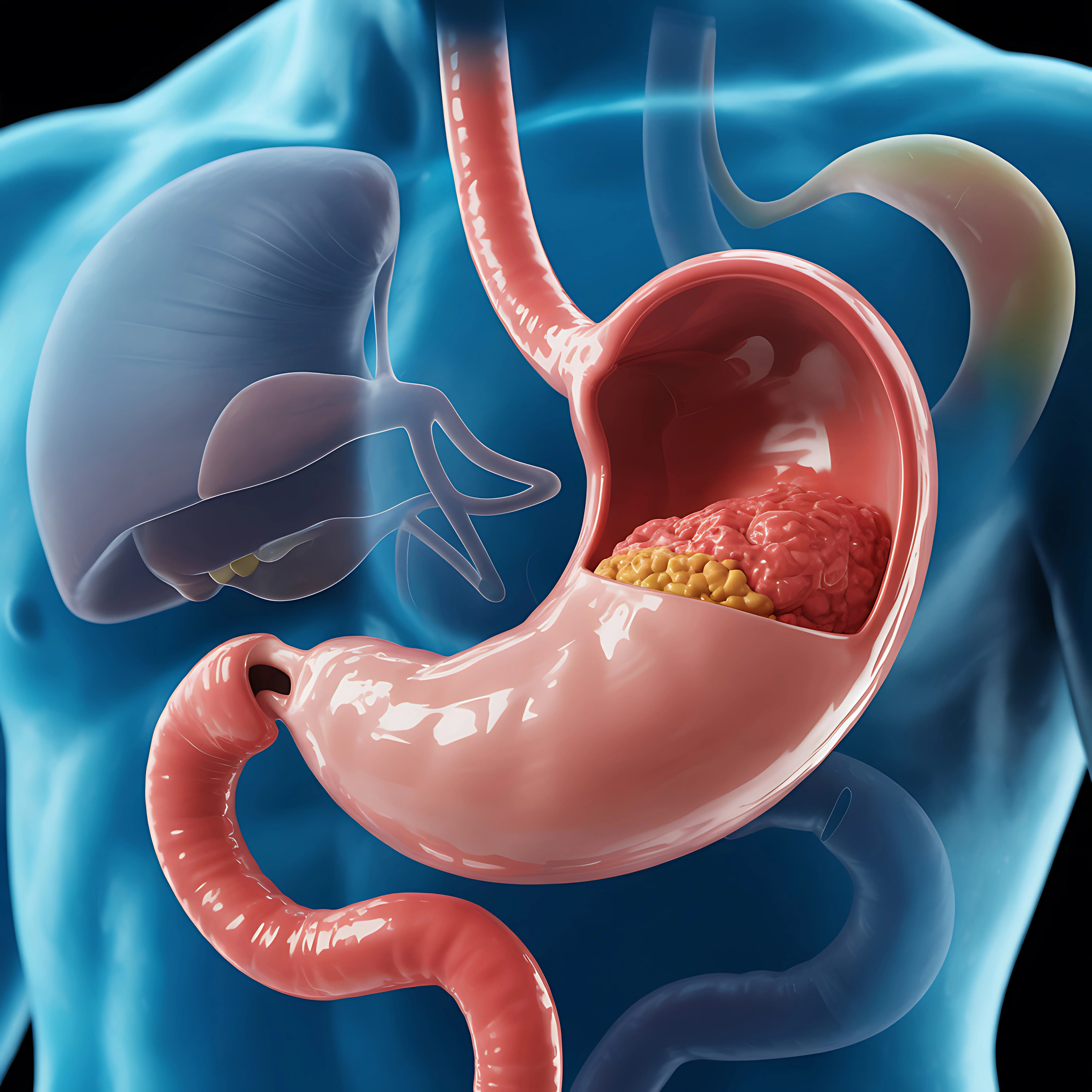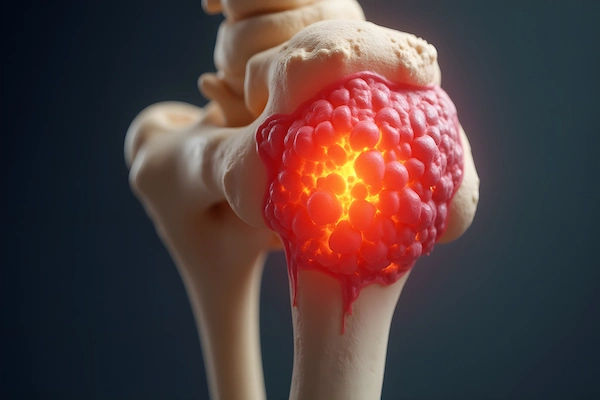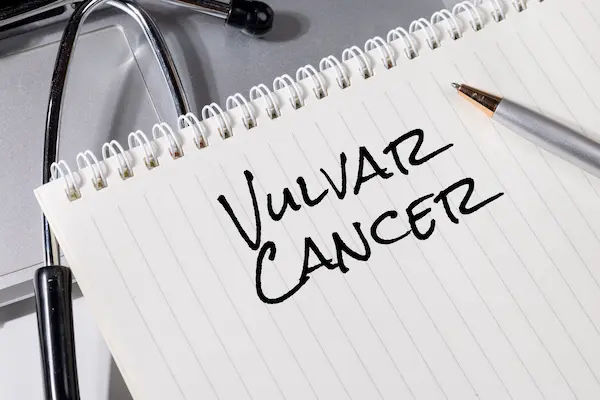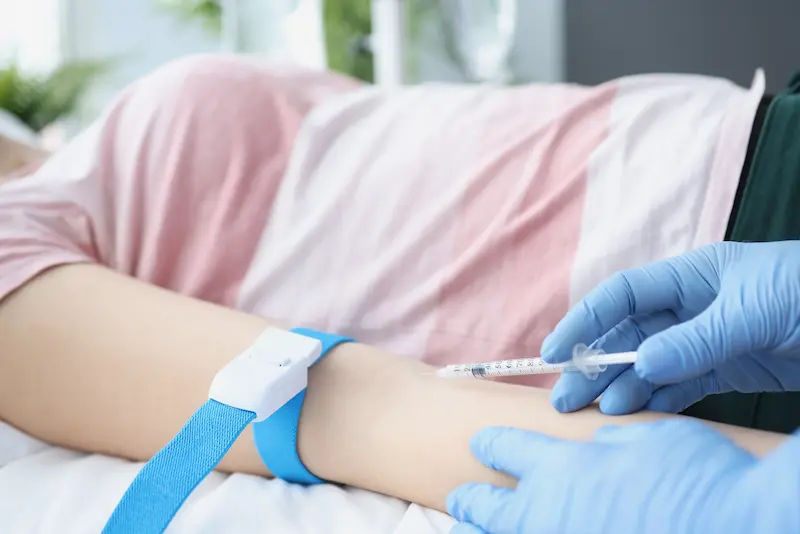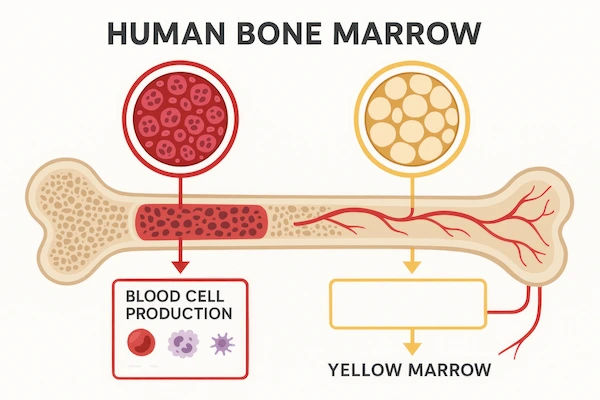Hormone Therapy's Impact on Breast Cancer Patients
Explore how hormone therapy helps treat hormone receptor-positive breast cancer, including its types, benefits, side effects, and lifestyle tips for better treatment management.

_1.webp?tr=q-80,f-webp,w-350,dpr-2,c-at_max 700w)
Breast cancer is one of the most common cancers affecting women worldwide. While treatments like surgery, chemotherapy, and radiation are well-known, hormone therapy plays a crucial role in managing certain types of breast cancer. If you or a loved one has been diagnosed with hormone receptor-positive breast cancer, understanding hormone therapy can help you make informed treatment decisions.
This article explains what hormone therapy is, how it works, its benefits, possible side effects, and tips to manage them effectively.
What is Hormone Therapy?
Hormone therapy (also called endocrine therapy) is a treatment used for hormone receptor-positive breast cancers. These cancers grow in response to hormones like estrogen or progesterone. The goal of hormone therapy is to either:
- Block hormones from attaching to cancer cells.
- Lower hormone levels in the body to slow or stop cancer growth.
- Unlike chemotherapy, which kills fast-growing cells (including healthy ones), hormone therapy specifically targets hormone-sensitive cancers with fewer side effects.
Who Needs Hormone Therapy?
Hormone therapy is not for all breast cancer patients. Doctors recommend it if:
- The cancer tests positive for estrogen (ER+) or progesterone (PR+) receptors.
- It is used after surgery (adjuvant therapy) to prevent recurrence.
- In advanced cases, it helps control cancer growth.
- Your doctor will determine if hormone therapy is right for you based on test results.
Get Your Symptoms Checked now
Types of Hormone Therapy
There are different types of hormone therapy, depending on whether you are premenopausal or postmenopausal:
1. Tamoxifen
- Works by blocking estrogen receptors in breast cells.
- Used in both premenopausal and postmenopausal women.
- Taken as a daily pill for 5-10 years.
2. Aromatase Inhibitors (AIs)
- Anastrozole, Letrozole, Exemestane
- Lowers estrogen levels (only for postmenopausal women).
- Often prescribed after tamoxifen or as the first treatment.
3. Ovarian Suppression
- For premenopausal women, drugs or surgery stop the ovaries from making estrogen.
- Used alongside other hormone therapies.
4. Fulvestrant (Faslodex)
- Given as an injection for advanced breast cancer.
- Destroys estrogen receptors in cancer cells.
Benefits of Hormone Therapy
Hormone therapy has proven benefits, including:
- Reduces the risk of cancer returning after surgery.
- Slows or stops cancer growth in advanced cases.
- Fewer side effects compared to chemotherapy.
- Improves survival rates for hormone-positive breast cancer.
Possible Side Effects & How to Manage Them
Like all treatments, hormone therapy may cause side effects. However, not everyone experiences them, and many can be managed.
Common Side Effects
1. Hot Flashes & Night Sweats
- Wear light clothing, and keep rooms cool.
- Avoid caffeine and spicy foods.
- Ask your doctor about medications if severe.
2. Fatigue
- Take short naps, stay active with light exercises.
- Prioritise rest and maintain a sleep schedule.
3. Joint & Muscle Pain
- Gentle stretching, yoga, or physiotherapy can help.
- Over-the-counter pain relievers (with doctor’s approval).
4. Mood Swings or Depression
- Talk to a counsellor or join a support group.
- Practice relaxation techniques like meditation.
5. Bone Thinning (Osteoporosis Risk)
- Take calcium and vitamin D supplements.
- Do weight-bearing exercises (walking, dancing).
- Bone density scans may be recommended.
6. Vaginal Dryness (Postmenopausal Women)
- Use water-based moisturisers or lubricants.
- Discuss safe options with your doctor.
If side effects become severe, consult your doctor—they may adjust your treatment.
Lifestyle Tips for Better Management
Along with medical treatment, small lifestyle changes can improve your well-being:
1. Eat a Balanced Diet
- More fruits, vegetables, whole grains, and lean proteins.
- Limit processed foods and sugars.
- Stay hydrated.
2. Stay Active
- Regular walks, yoga, or light exercises help reduce fatigue and strengthen bones.
3. Avoid Alcohol & Smoking
- Both can interfere with treatment effectiveness.
4. Regular Check-ups
- Keep up with doctor visits and screenings.
5. Emotional Support
- Talk to friends, family, or join breast cancer support groups.
When to Seek Help?
While hormone therapy is generally safe, contact your doctor if you experience:
- Severe bone pain or fractures.
- Uncontrolled mood swings or depression.
- Signs of blood clots (leg pain, swelling, shortness of breath).
- Unusual vaginal bleeding (for postmenopausal women).
Final Thoughts
Hormone therapy is a powerful tool in fighting hormone-positive breast cancer, helping many women live longer, healthier lives. While side effects can occur, most are manageable with small adjustments.
If you have concerns or need guidance, consult an oncologist to discuss the best treatment plan for you.
Need expert advice?
You can book a consultation with top breast cancer specialists on Apollo 24|7 for personalised care.
Consult Top Oncologist
Consult Top Oncologist

Dr. Amit Choraria
Surgical Oncologist
18 Years • MBBS, MS (Surgery) Fellow, Surgical Oncology, Tata Medical Center (FSO) Fellow, European Board of Surgery (Surgical Oncology) (FEBS) Fellow, Minimal Access Surgery (FMAS) Fellow, Indian Association of Gastrointestinal Endosurgeons (FIAGES) UICC Fellow, Royal Marsden NHS, London, UK Visiting Scholar, Plastic Reconstructive Surgery, CGMH, Taiwan Fellow, Robotic Surgical Oncology, Vattikuti Foundation, USA
Kolkata
Apollo Multispeciality Hospitals , Kolkata, Kolkata
(75+ Patients)

Dr Gowshikk Rajkumar
Oncologist
10 Years • MBBS, DMRT, DNB in Radiation oncology
Bengaluru
Apollo Clinic, JP nagar, Bengaluru

Dr. Subhash Chandra Chanana
Oncologist
51 Years • M.B.B.S , M.S. (General Surgery), F.A.C.S (Oncosurgeon)
Gurugram
APOLLO SUGAR CLINICS GURUGRAM, Gurugram

Dr. Gopal Kumar
Head, Neck and Thyroid Cancer Surgeon
15 Years • MBBS, MS , FARHNS ( Seoul, South Korea ), FGOLF ( MSKCC, New York )
Delhi
Apollo Hospitals Indraprastha, Delhi
(25+ Patients)

Dr. Praveen Kumar Garg
Surgical Oncologist
26 Years • MBBS, M.S.(Gen.Surg.), M.Ch.(OncoSurg.)
Delhi
Apollo Hospitals Indraprastha, Delhi
(50+ Patients)

